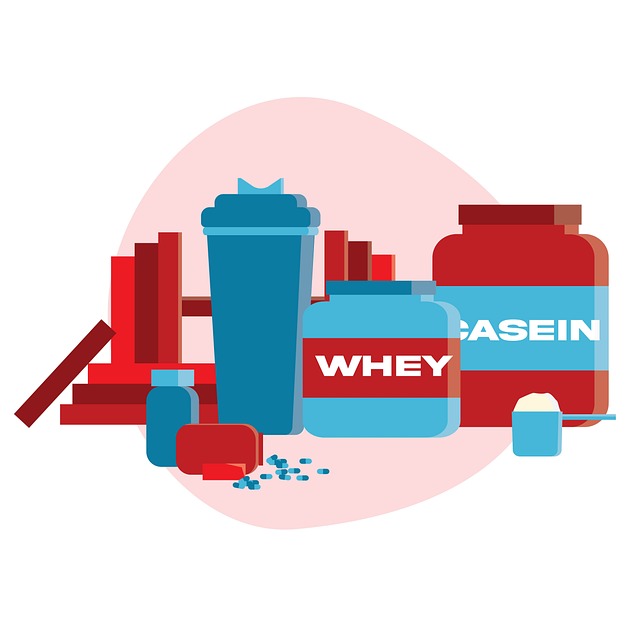Vitamin K2: The Unsung Hero of Bone and Heart Health
Vitamin K2, a lesser-known nutrient in the vitamin K family, has been quietly making waves in the world of nutrition and health. Often overshadowed by its more famous cousin, vitamin K1, K2 has emerged as a critical player in maintaining strong bones and a healthy cardiovascular system. This fat-soluble vitamin, discovered in the 1930s, has only recently gained recognition for its unique properties and potential health benefits. As researchers delve deeper into its mechanisms, vitamin K2 is challenging our understanding of nutrient interactions and opening new avenues for disease prevention and treatment.

Calcium Regulation and Bone Health
One of the most significant roles of vitamin K2 is its involvement in calcium metabolism. Unlike vitamin K1, which primarily supports blood clotting, K2 activates proteins that help direct calcium to the bones and teeth where it’s needed most. Osteocalcin, a protein dependent on vitamin K2 for activation, plays a crucial role in binding calcium to the bone matrix. This process not only strengthens bones but also helps prevent calcium from accumulating in soft tissues and arteries, where it can cause harm.
Cardiovascular Benefits and Arterial Health
The relationship between vitamin K2 and heart health has been a subject of increasing interest among researchers. Matrix Gla protein (MGP), another K2-dependent protein, acts as a potent inhibitor of vascular calcification. By activating MGP, vitamin K2 helps prevent the buildup of calcium in arterial walls, potentially reducing the risk of atherosclerosis and other cardiovascular diseases. This dual action of promoting bone health while protecting the cardiovascular system sets K2 apart from many other nutrients and has led some researchers to dub it the “cardiovascular vitamin.”
Sources and Dietary Considerations
Vitamin K2 is found naturally in certain foods, particularly those produced through bacterial fermentation. Natto, a traditional Japanese food made from fermented soybeans, is the richest known source of K2 in the form of MK-7. Other sources include certain cheeses (especially those made with bacterial cultures), egg yolks, and organ meats. Interestingly, grass-fed animal products tend to have higher K2 content compared to their grain-fed counterparts, highlighting the importance of animal diet in nutrient composition.
Synergy with Vitamin D and Calcium
The interplay between vitamin K2, vitamin D, and calcium is a fascinating area of nutritional science. While vitamin D enhances calcium absorption in the intestines, K2 ensures that this calcium is utilized effectively in the body. Without adequate K2, increased calcium intake could potentially lead to inappropriate calcification in soft tissues. This synergistic relationship underscores the importance of a balanced intake of these nutrients for optimal bone and cardiovascular health.
Emerging Research and Potential Applications
Recent studies have begun to explore the potential of vitamin K2 in areas beyond bone and heart health. Preliminary research suggests possible benefits in dental health, skin elasticity, and even certain types of cancer. One intriguing area of study is the role of K2 in glucose metabolism and insulin sensitivity, with some evidence suggesting it may have a positive impact on type 2 diabetes risk. While more research is needed to confirm these findings, they highlight the broad-reaching effects of this vitamin on various bodily systems.
Supplementation and Safety Considerations
As awareness of vitamin K2’s benefits grows, so does interest in supplementation. However, determining optimal dosage and form can be challenging, as research is still ongoing. Most studies have used doses ranging from 45 to 360 micrograms per day, with MK-7 being the most common form in supplements due to its longer half-life. Unlike vitamin K1, K2 does not appear to interfere with blood-thinning medications, making it a potentially safer option for individuals on anticoagulant therapy. However, as with any supplement, it’s crucial to consult with a healthcare provider before starting a K2 regimen.
Future Directions and Public Health Implications
As our understanding of vitamin K2 continues to evolve, its potential impact on public health becomes increasingly apparent. The possibility of reducing osteoporosis and cardiovascular disease risk through targeted nutrition strategies is particularly exciting. However, challenges remain in educating both the public and healthcare professionals about this often-overlooked nutrient. Future research will likely focus on establishing clear dietary recommendations, exploring potential therapeutic applications, and investigating the long-term effects of K2 supplementation.
In conclusion, vitamin K2 represents a fascinating intersection of nutrition, biochemistry, and preventive medicine. Its unique ability to support both skeletal and cardiovascular health sets it apart in the world of vitamins and minerals. As research progresses, vitamin K2 may well emerge as a key player in our approach to maintaining overall health and preventing chronic diseases. The story of K2 serves as a reminder of the complex interplay between nutrients in our body and the importance of a balanced, diverse diet in supporting optimal health.




